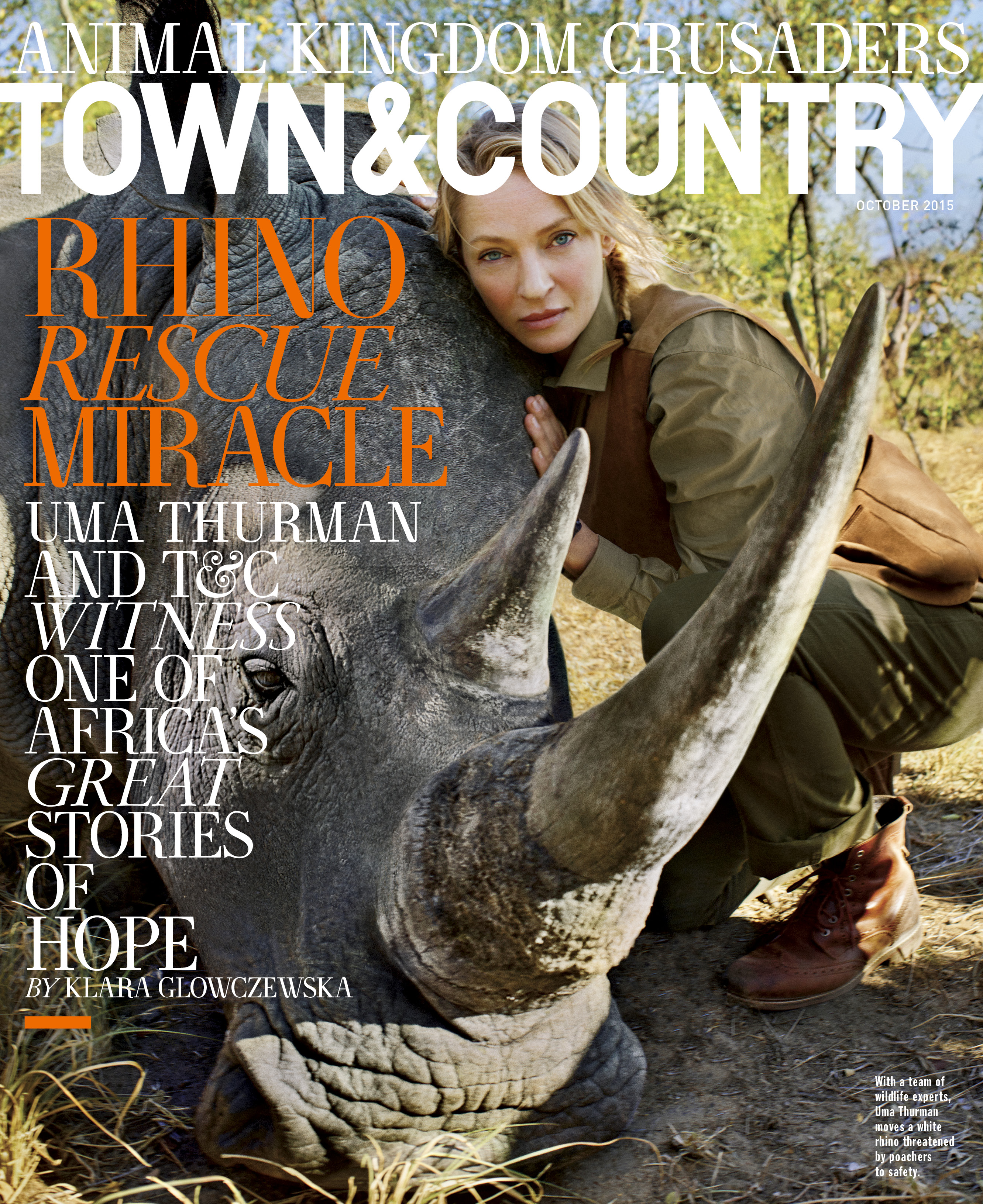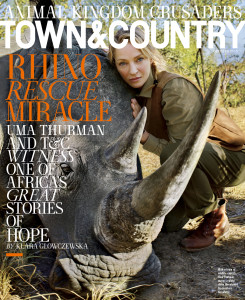Actress Uma Thurman is on a mission. A Rhino rescue mission that is.
The superstar covers the October issue of Town & Country where she documents the truly inspiring story of her travels to South Africa to participate in a revolutionary effort to help save a disappearing prehistoric species, the rhinoceros.
Rhinos have lived on this earth for millions of years, but wildlife experts estimate they may be gone in just ten —poached to extinction.
Approximately 4.5 of the animals are being killed every day. The ‘rhinocide,’ as Thurman calls it, has surged since 2008, when the prestige of rhino horn began climbing rapidly among the rising rich in Vietnam, where it is thought to not only cure cancer but enhance virility, and where it also serves, ground to a powder, as a party drug. An intact, well-shaped horn will fetch between $750,000 and $1 million.
Working with a team of wildlife experts from Wilderness Safaris, Uma and Town & Country’s Executive Travel Editor, Klara Glowczewska, helped rescue, save and relocate two white rhinos, a mother and calf, to safety from South Africa’s Timbavati Game Reserve to Botswana, where they could be better protected from the threat of poachers.
Devoted to the mission, Uma stated “I have lent myself to this. I’m here to help.”
Here’s some of the interview:
Uma Thurman on what it was like to be so close to a wild creature of that size:
“I was so moved. I was just breathing in the dearness of her.”
On what she learned from this experience and why she believes in making an effort and how there is hope:
“I think so many of us feel that there is no point – Who are we? What can we do? There are so many dire situations, and it’s all out of our control. And there is sort of truth to that. But what I learned in Africa is that one must make an effort anyway. Because you just don’t know. Until the story is concluded, there is always hope.”
Her thoughts on the Government’s involvement on these rescues:
“How moving it was to actually see the joy of military men performing a labor of love. It’s something I have never seen. It is sadly not what they are asked to do most of the time elsewhere in the world.”
On newsstands today.


